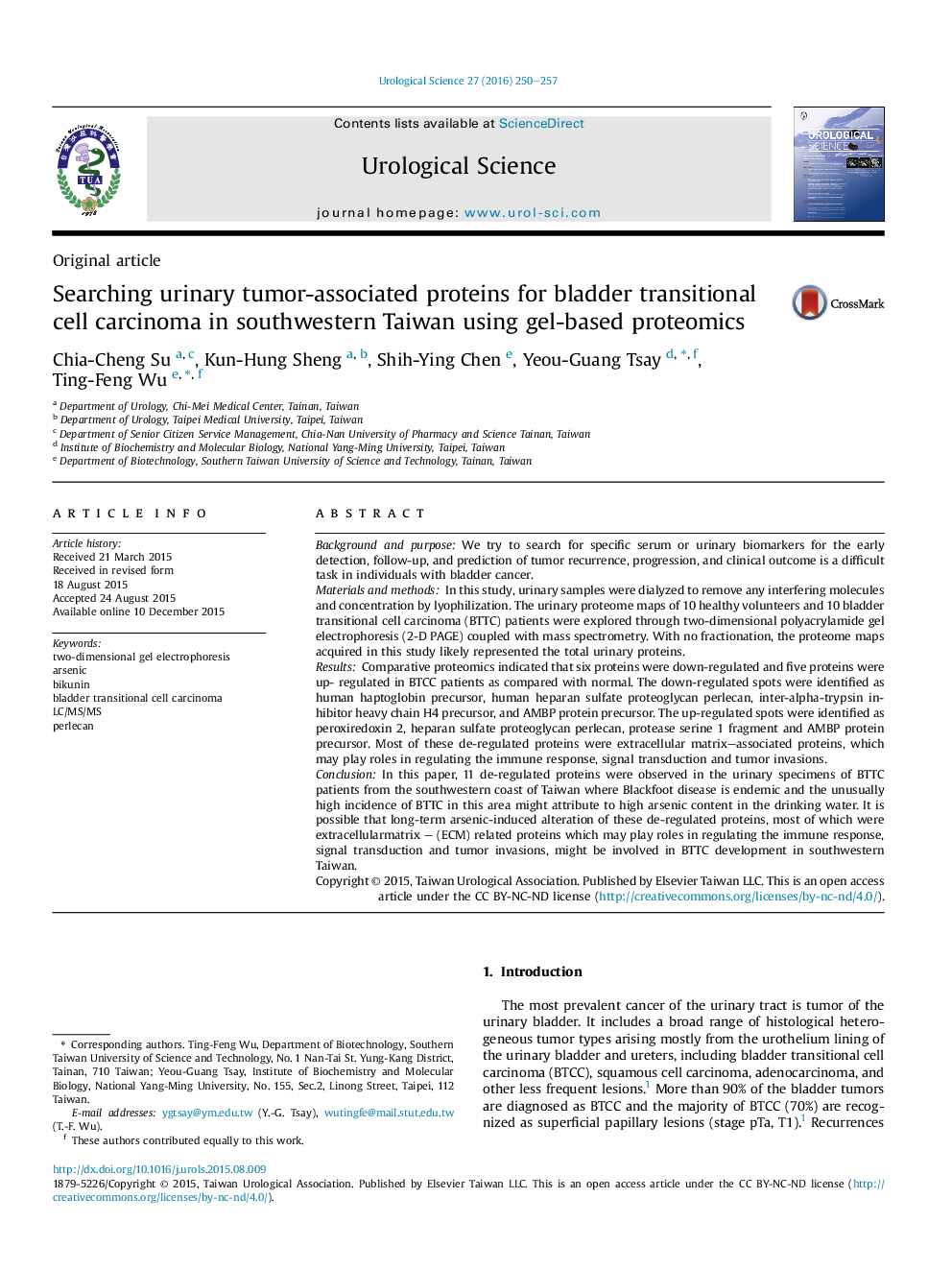| کد مقاله | کد نشریه | سال انتشار | مقاله انگلیسی | نسخه تمام متن |
|---|---|---|---|---|
| 5730635 | 1411721 | 2016 | 8 صفحه PDF | دانلود رایگان |
Background and purposeWe try to search for specific serum or urinary biomarkers for the early detection, follow-up, and prediction of tumor recurrence, progression, and clinical outcome is a difficult task in individuals with bladder cancer.Materials and methodsIn this study, urinary samples were dialyzed to remove any interfering molecules and concentration by lyophilization. The urinary proteome maps of 10 healthy volunteers and 10 bladder transitional cell carcinoma (BTTC) patients were explored through two-dimensional polyacrylamide gel electrophoresis (2-D PAGE) coupled with mass spectrometry. With no fractionation, the proteome maps acquired in this study likely represented the total urinary proteins.ResultsComparative proteomics indicated that six proteins were down-regulated and five proteins were up- regulated in BTCC patients as compared with normal. The down-regulated spots were identified as human haptoglobin precursor, human heparan sulfate proteoglycan perlecan, inter-alpha-trypsin inhibitor heavy chain H4 precursor, and AMBP protein precursor. The up-regulated spots were identified as peroxiredoxin 2, heparan sulfate proteoglycan perlecan, protease serine 1 fragment and AMBP protein precursor. Most of these de-regulated proteins were extracellular matrix-associated proteins, which may play roles in regulating the immune response, signal transduction and tumor invasions.ConclusionIn this paper, 11 de-regulated proteins were observed in the urinary specimens of BTTC patients from the southwestern coast of Taiwan where Blackfoot disease is endemic and the unusually high incidence of BTTC in this area might attribute to high arsenic content in the drinking water. It is possible that long-term arsenic-induced alteration of these de-regulated proteins, most of which were extracellularmatrix - (ECM) related proteins which may play roles in regulating the immune response, signal transduction and tumor invasions, might be involved in BTTC development in southwestern Taiwan.
Journal: Urological Science - Volume 27, Issue 4, December 2016, Pages 250-257
